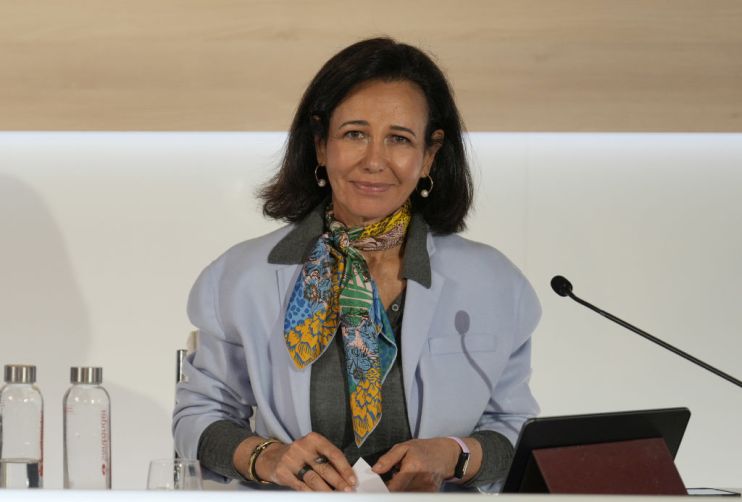Santander faces potential shareholder revolt over chair’s pay

A key proxy adviser has urged Santander shareholders to vote against changes to executive chair Ana Botín’s pay package at the bank’s annual general meeting this month.
Botín was awarded a bumper pay package of €12.2m (£10.5bn) last year, with her fixed pay up three per cent from 2022, as Santander posted record annual profits of €11.1bn on the back of higher interest rates.
The Spanish bank has put forward a change to its pay policy that would see Botín and chief executive Héctor Grisi’s salaries rise five per cent, and it is seeking shareholder approval for the pay bumps at its AGM on 22 March. Grisi earned €6.8m in total last year.
Influential proxy advisor Institutional Shareholder Services (ISS) sent shareholders a report on Friday, seen by City A.M., recommending they oppose the new plan over concerns about the correlation between pay and performance.
The report said Santander’s board is trying to justify the pay rise by pointing to the bank’s 40 per cent shareholder return last year and a need to stay competitive with rivals.
Santander shares surged 32 per cent in 2023, although the stock is down 40 per cent since Botín took over as executive chair from her father Emilio in 2014.
“The chair remuneration package seems far from being uncompetitive, and the proposed increase is likely to exacerbate recurring pay-for-performance concerns,” ISS said. “For this reason, support to the new policy is not warranted.”
ISS’s concerns relate only to fixed pay. Under the new plan, Botín’s fixed salary would rise to €3.43m from €3.27m, while Grisi’s would increase to €3.15m from €3m.
The proxy adviser has backed the rest of Santander’s AGM proposals.
Botín has supported removing the bankers’ bonus cap in Europe as the UK did last October. She told a Financial Times conference last November that scrapping the cap would more closely align the interests of bankers and their shareholders.
A Santander spokesperson told City A.M.: “The board of Santander is committed to ensuring the remuneration of executives is fully aligned with the interests of shareholders.
“In 2023 the bank delivered record performance, increasing profit by 15 per cent and achieving a total shareholder return of over 40 per cent. The bank has set stretching targets for 2024 and remains focused on delivering sustainable long-term value creation.”
The Financial Times first reported ISS’ concerns. Another proxy adviser, Glass Lewis, has backed Santander’s remuneration report.